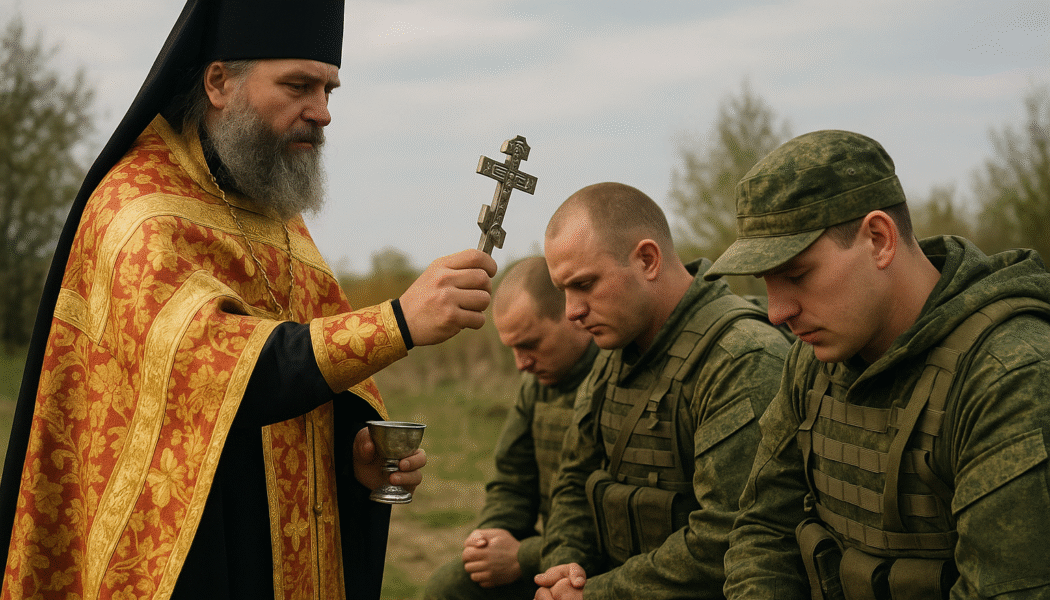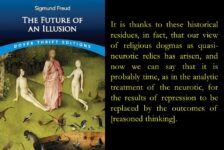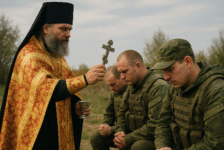“Religions don’t cause wars, people do.” This well meaning phrase is often repeated in progressive and humanist circles. But when we look at today’s global conflicts (from Gaza to Ukraine, through Yemen, Iran, Myanmar, or Nigeria) it becomes impossible to ignore the role religion plays as symbolic fuel, moral justification, and a driver of collective identity.
Today, wars are no longer openly declared in the name of God. However, God is everywhere: in the speeches of leaders, in flags, in temples blessing soldiers, in mosques and synagogues that remain silent or even applaud when atrocities are committed.
Palestine-Israel: Between Theocracy and Messianic Militarism
The conflict between Israel and Palestine has long been a knot of colonialism, occupation, resistance, and suffering. But in recent years, the religious dimension of the conflict has intensified to alarming levels.
On Israel’s side, the rise of ultra Orthodox and religious Zionist parties has transformed the Jewish state into a hybrid of ethnic democracy and institutionalized theocracy. The expansion of settlements in the West Bank and East Jerusalem is not only political, it is often presented as a divine mandate. Ministers cite the Bible to justify evictions, military rabbis bless operations, and young soldiers educated in nationalist religious Yeshivas now represent a new face of an army that no longer claims to be merely defensive.
It is absurd for army-affiliated institutions to instruct soldiers to place the political agenda of the Whole Land of Israel above orders. The fact that the political agenda is shot through with religious beliefs does not justify the absurdity.
~ Gershom Gorenberg, The Unmaking of Israel
Among Palestinians, the use of political Islam by Hamas and other groups has also infused religion into what should be a struggle for self determination. Resistance is Islamized, victims are framed as martyrs, and the narrative drifts further away from secular universalism.
In both cases, religion does not explain the conflict, but it makes it more intransigent, more eternal and more violent.
Iran and the Geopolitics of the Sacred
Iran is one of the clearest examples of a modern theocracy. Since the Islamic Revolution of 1979, the Iranian regime has used Shia Islam not only as an internal ideological base, but also as a tool for regional expansion.
The Wilayat al-Faqih (Guardianship of the Islamic Jurist) is not merely a legal structure, it’s a doctrine that legitimizes internal repression, gender control, censorship, and violence against dissidents, especially atheists, apostates, and LGBTQ+ individuals, who face imprisonment, exile, or execution.
Internationally, Iran has forged a theological-political axis with groups like Hezbollah in Lebanon, Shia militias in Iraq, the Houthis in Yemen, and the Assad regime in Syria. Religion here becomes a vehicle of imperial ambition, not unlike the Manifest Destiny theology that once shaped Christian empires.
Putin and the Orthodox Cross: A Sacred War in Ukraine
In the war in Ukraine, religion has been wielded as a propaganda tool by the Kremlin. The Moscow Patriarchate has openly supported the invasion, describing Ukraine as part of Святая Рус Svyataya Rus (Holy Russia) and blessing troops in the name of a crusade against the West and its moral decadence.
Patriarch Kirill went as far as to declare that Russian soldiers who die in battle will have all their sins forgiven. Thus, this war is fought not only with tanks and missiles, but also with icons, incense, and sermons.
Meanwhile, the Ukrainian Orthodox Church has severed ties with Moscow, and many Ukrainians are seeking spiritual paths not tied to clerical nationalism.
Other Conflicts: Militant Hinduism and Belligerent Buddhism
In India, the ruling BJP has promoted an aggressive form of Hindu nationalism (Hindutva) that has justified pogroms against Muslims, lynchings, and a narrative of cultural superiority deeply entwined with state policies.
In Myanmar, Buddhism, often stereotyped as peaceful, was weaponized by the military to persecute the Muslim Rohingya minority. Monks like Ashin Wirathu blessed the violence as a defense of national identity.
In Africa, groups like Boko Haram and Al-Shabaab have committed atrocities in the name of an extremist version of Islam, but we must not overlook the role of evangelical churches that spread homophobia, hatred, and cultural warfare in the name of God.
Churches: Silent Witnesses or Active Complicit?
In many of these conflicts, religious institutions are far from neutral bystanders. Often, they legitimize, bless, or remain selectively silent.
The major churches: Catholic, Orthodox, and Protestant, rarely denounce their national allies with any force. They prefer to issue generic calls for peace, avoiding clear condemnation when the aggressor is one of their own.
Institutional religion often seems more interested in preserving influence than in defending life.
Religion for Peace or Secularism for Justice?
Not everything is bleak. Some believers speak out against war. Some theologians denounce the use of faith to justify massacres. But they are few and their impact is limited compared to the organized power of clerics, patriarchs, and pastors who bless armies.
In this context, secular thought cannot remain neutral. Secularism is not merely a legal or philosophical stance, it is a condition for peace. And we need it.
We need truly secular states, where no religion holds privilege in foreign or defense policy.
We need brave journalism that exposes the role of churches in armed conflicts.
We need an atheist and humanist community that not only critiques religion, but actively proposes a culture of peace grounded in reason and solidarity.
In the past, it was more obvious, but today, the link between gods, rulers, and war is regaining strength. Religions will continue to exist. But if we don’t strip them of their monopoly on morality, they will continue to be used as excuses to kill.
Peace will not arrive by miracle. It needs critical thinking, social justice, and moral courage. In times of war, the voice of secularism must not go silent. On the contrary, it must speak louder than ever.









